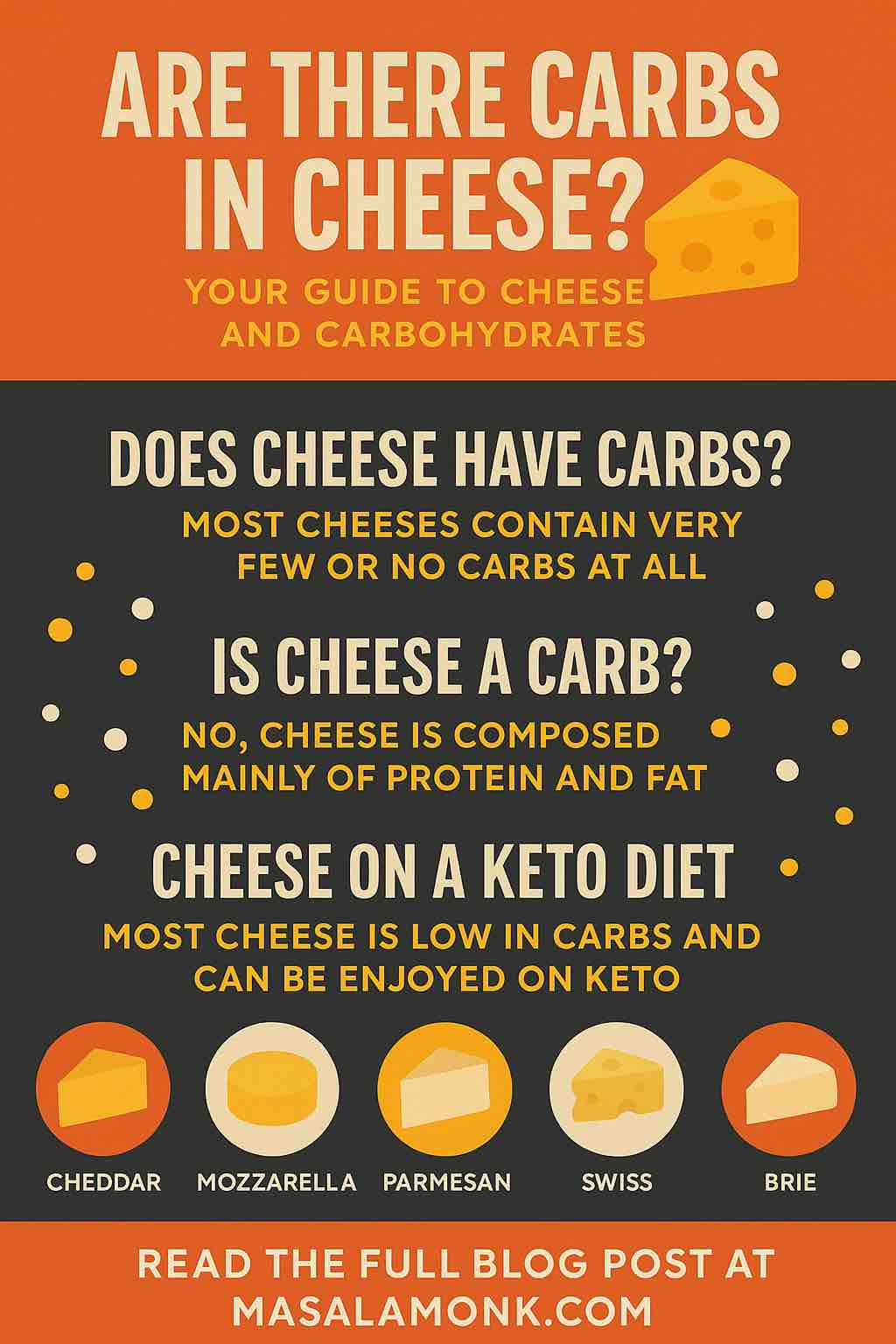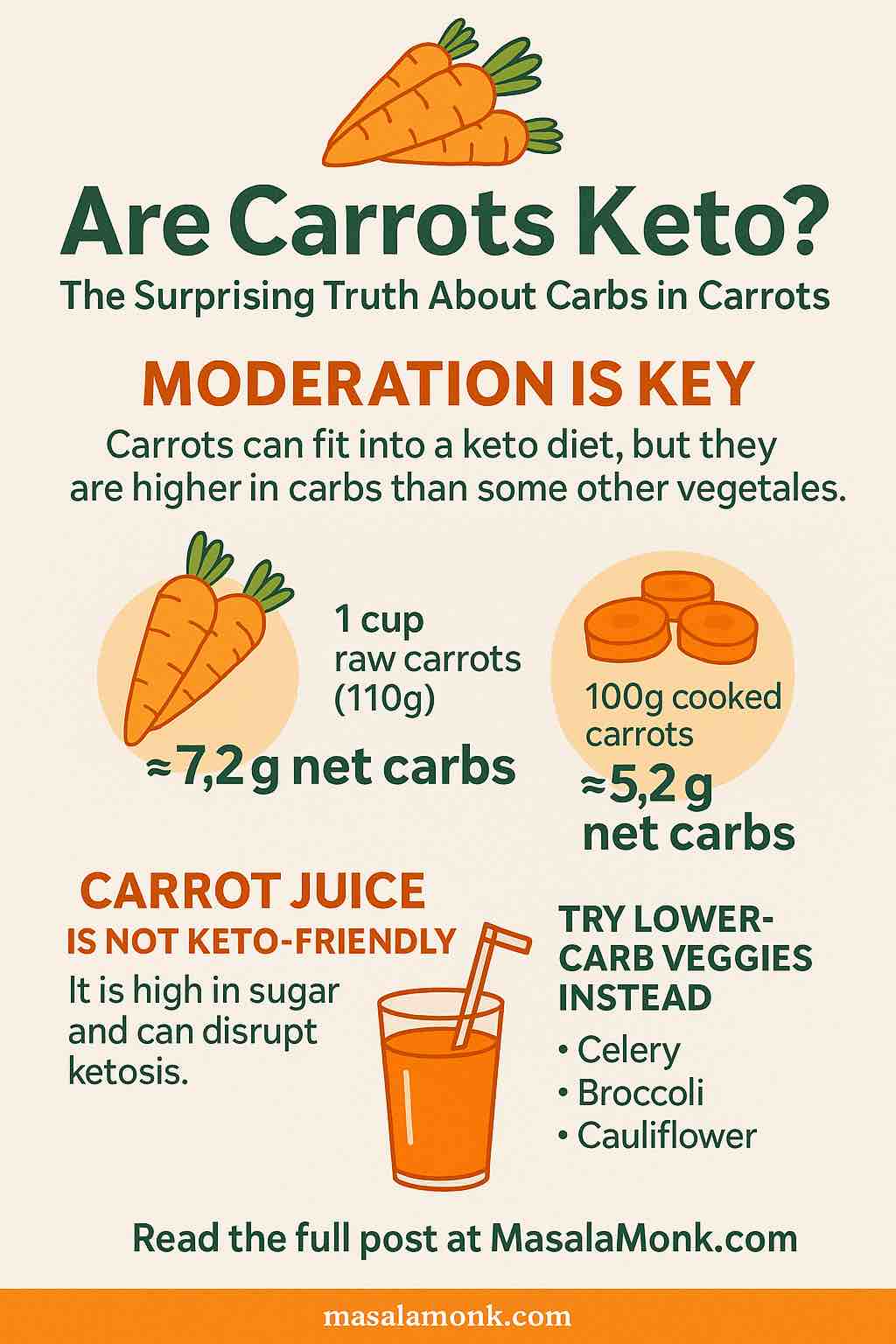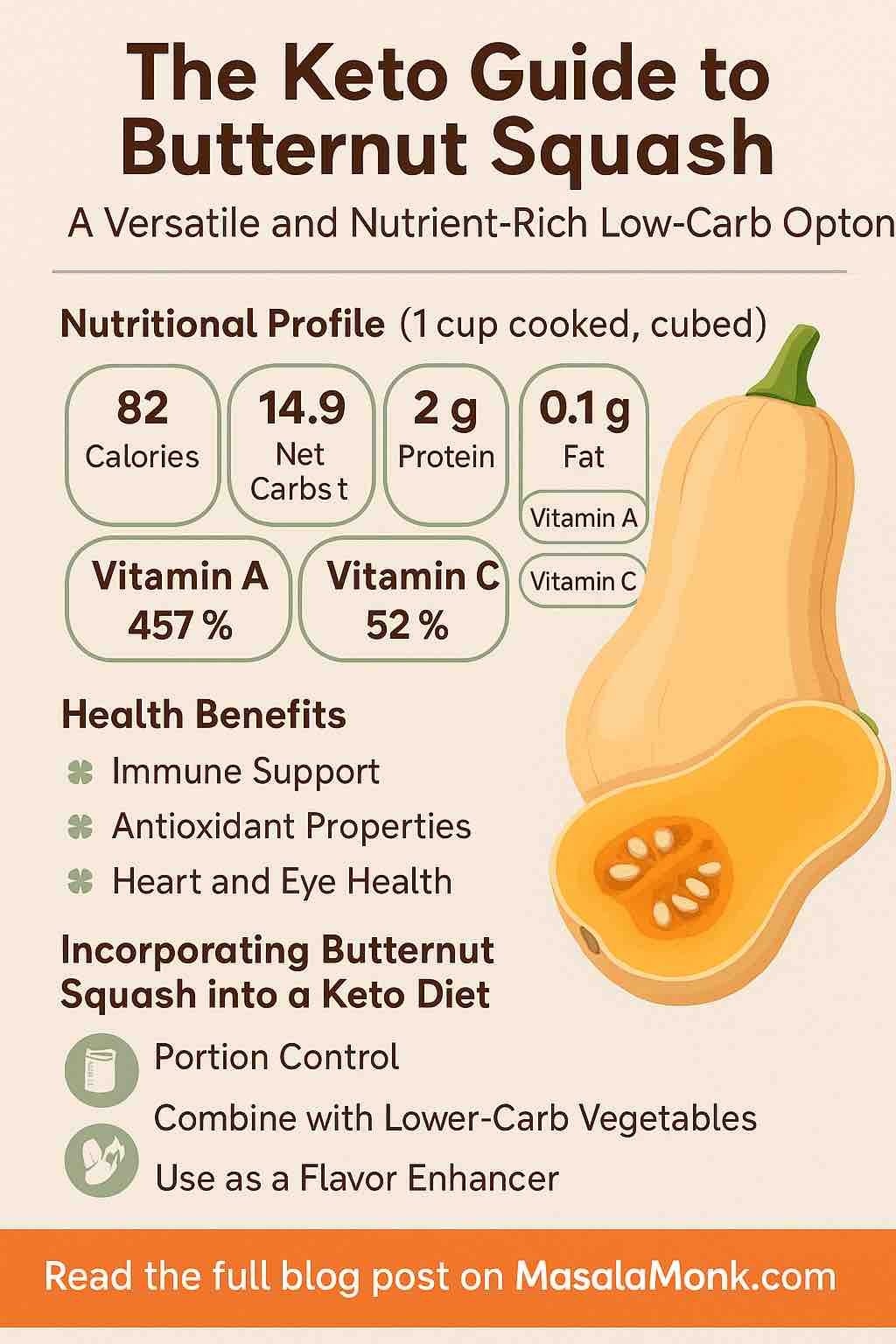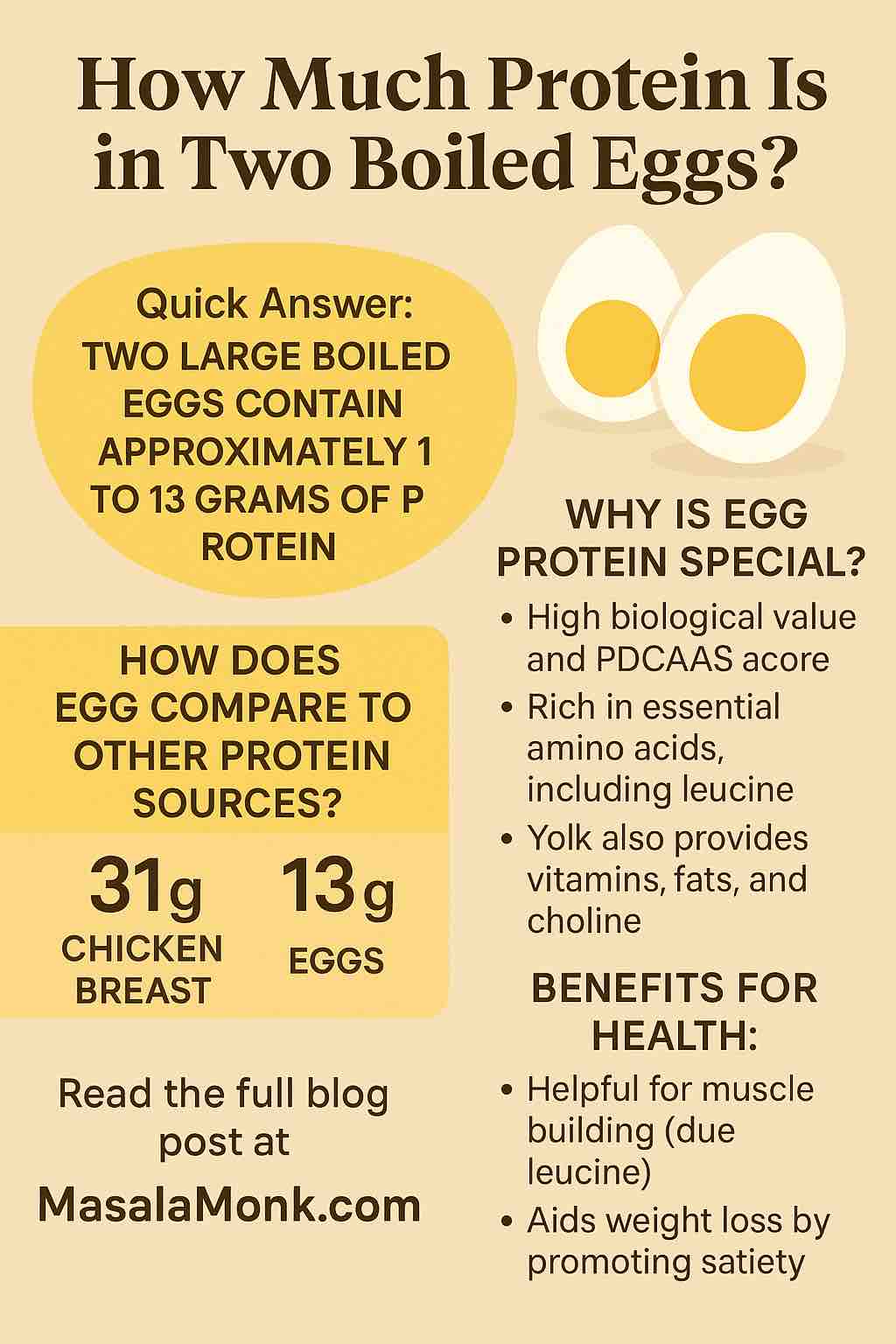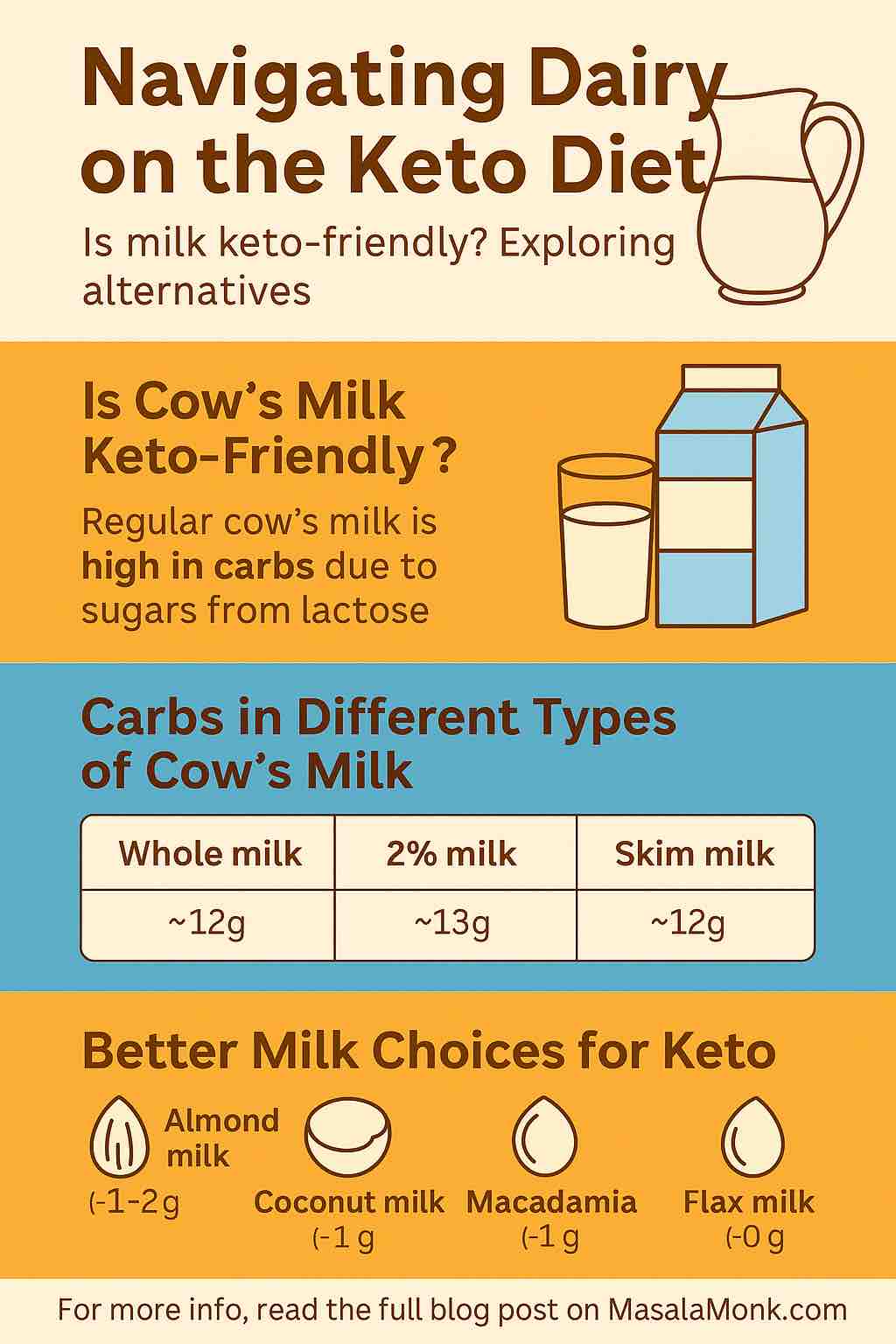
The ketogenic (keto) diet is a low-carb, high-fat, and moderate-protein dietary approach designed to shift your body into a state of ketosis — a metabolic state where fat becomes the primary fuel source instead of glucose. For most people, achieving ketosis requires limiting net carbohydrates to about 20–50 grams per day.
This limitation means that every gram of carbohydrate counts, and even healthy-sounding foods like milk can interfere with ketosis if not accounted for carefully.
As interest in keto grows, questions like:
- “Is milk keto?”
- “Can I have milk on a keto diet?”
- “What’s the best milk for keto?”
…are increasingly common — and completely valid. Let’s address them head-on.
Is Cow’s Milk Keto-Friendly?
Not Exactly — And Here’s Why
Cow’s milk — whether it’s whole, 2%, or skim — contains a sugar called lactose, which contributes significantly to its carbohydrate content. While it’s a great source of calcium, vitamin D, and protein, it’s not ideal for those on a ketogenic diet due to its carb profile.
Here’s a breakdown of the net carbs per 1 cup (240ml) of various types of cow’s milk:
| Type of Milk | Net Carbs (approx.) |
|---|---|
| Whole milk | 11–12g |
| 2% milk | 12–13g |
| Skim milk | 12g |
| Lactose-free milk | ~11g |
This is more than half of the daily carb allowance for a strict keto dieter — and that’s just from one glass of milk.
So, if you’re wondering, “Is milk low carb?” or “Can I drink milk on a keto diet?”, the answer is: not really — unless it’s in very small quantities.
Why Milk Is Problematic on Keto
Even though milk is a natural product, it’s not low-carb by keto standards. Most of the carbohydrates in milk come from lactose, a disaccharide composed of glucose and galactose, which rapidly affects blood sugar levels — something you want to avoid on keto.
Compare Milk with Other Dairy:
- Cheese: Low in lactose, higher in fat, minimal carbs
- Heavy cream: Low carb, high fat — keto staple
- Greek yogurt: Can be keto-friendly if unsweetened and full-fat
- Milk: Higher carbs, low fat (especially skim), spikes insulin
Hence, while “keto and milk” or “milk on keto” may seem compatible at a glance, the lactose content makes regular milk a poor fit.
So, Can You Ever Have Milk on Keto?
The short answer is: Yes, but sparingly.
Using a tablespoon or two of milk in coffee likely won’t throw you out of ketosis, especially if you’re following a more flexible “lazy keto” or cyclical keto approach. However, drinking a full cup of milk daily or using it in smoothies or cereal replacements can quickly eat up your carb allowance.
Many keto practitioners opt to eliminate regular milk entirely or switch to low-carb alternatives to avoid even small risks of breaking ketosis.
Keto-Friendly Milk Alternatives: What Can You Drink Instead?
There’s good news — you don’t have to give up “milk” entirely. Many plant-based and specialty milks are not only keto-friendly but also widely available.
Top Low-Carb Milk Options for Keto:
| Milk Substitute | Net Carbs (1 cup) | Notes |
|---|---|---|
| Unsweetened almond milk | 1–2g | Neutral flavor, great in coffee, smoothies |
| Unsweetened coconut milk (carton) | 1g | Creamy, tropical, good for baking |
| Macadamia nut milk | 1g | Buttery taste, very low carb |
| Flax milk | 0–1g | Often enriched with omega-3s |
| Hemp milk | 1g | Earthy taste, good omega profile |
| Pea milk (unsweetened) | 2g | Higher protein, creamy texture |
| Heavy cream + water (50/50) | ~1g | DIY “milk”, high fat, low carb |
Make sure to always choose unsweetened versions. Many “original” or flavored nut milks contain added sugars that spike the carb count significantly, often to 6–10g per cup.
If you’re doing a lot of baking or cooking and asking “what milk is keto?”, coconut and almond milk are among the most versatile choices.
How to Use Keto Milk Substitutes
Here’s how low-carb milk alternatives can easily replace cow’s milk in your daily routine:
- In Coffee or Tea: Almond milk or heavy cream are top choices
- Smoothies: Coconut or macadamia milk blends well with keto fruits (like berries) and protein powders
- Baking: Flax milk or almond milk can replace regular milk 1:1 in many recipes
- Cereal Replacements: Pour over unsweetened keto granola or chia seed bowls
Some users even ask about “low carb cow milk” — which technically doesn’t exist yet, though brands are experimenting with ultrafiltered milks like Fairlife. These are lower in sugar but still not as low-carb as plant-based alternatives.
Navigating Dairy on Keto: Practical Tips
If you’re still attached to cow’s milk, here are a few practical ways to keep it (somewhat) keto-friendly:
- Use smaller portions – A tablespoon of milk in coffee = ~1g carbs
- Choose full-fat dairy – Whole milk is slightly lower in carbs per gram of fat than skim
- Try ultrafiltered milk – Fairlife has ~6g carbs per cup, but still not ideal
- Mix heavy cream with water – A keto hack to mimic milk texture with fewer carbs
That said, for most dedicated keto followers, switching to almond, coconut, or macadamia milk is the easiest way to stay in ketosis while still enjoying milk-like drinks.
Conclusion: Is Milk Keto?
Regular cow’s milk is not keto-friendly due to its high lactose (sugar) content. While it can be consumed in very limited quantities, it’s rarely worth the carb cost.
Instead, choose low-carb milk substitutes that provide the same creamy texture with minimal impact on your daily carb intake. Whether you’re whipping up a keto coffee, baking a dessert, or blending a post-workout smoothie, there’s a keto milk option that fits your goals.
The key is to check labels, stick to unsweetened varieties, and treat even “healthy” dairy with awareness. Once you make the switch, you likely won’t miss cow’s milk at all — and your macros will thank you.
Frequently Asked Questions
1. Is milk allowed on a keto diet?
Milk is not ideal on a keto diet due to its lactose content, which results in around 12g of carbs per cup. Small amounts may be okay, but regular consumption can quickly exceed your daily carb limit.
2. What kind of milk is best for keto?
Unsweetened almond milk, coconut milk, macadamia milk, flax milk, and hemp milk are among the best low-carb milk options for keto. Always choose unsweetened varieties to keep carbs under 2g per cup.
3. How many carbs are in a cup of regular milk?
One cup (240ml) of regular cow’s milk contains about 11–13g of net carbs, depending on whether it’s whole, 2%, or skim. This is often too high for keto diets.
4. Can you drink milk in coffee on keto?
Yes, but use very small amounts — a tablespoon of milk has roughly 1g of carbs. A better option is to use heavy cream, unsweetened almond milk, or coconut milk, which are much lower in carbs.
5. Is lactose-free milk better for keto?
Not necessarily. While lactose-free milk removes or breaks down lactose, the carbohydrate content remains about the same, so it’s still not keto-friendly.
6. Is almond milk keto-friendly?
Yes, especially unsweetened almond milk, which typically contains only 1–2g of net carbs per cup. It’s one of the most popular and accessible keto milk alternatives.
7. What is the lowest carb milk substitute?
Flax milk and unsweetened macadamia milk are among the lowest, with 0–1g net carbs per cup. These are ideal for strict keto diets.
8. Can I drink skim milk on keto?
No, skim milk is not recommended for keto. Despite being lower in fat, it still contains 12g of carbs per cup, just like whole milk — but without the benefit of dietary fat.
9. What milk can I use for baking on keto?
Use unsweetened almond milk, coconut milk (from the carton), or a half-and-half mix of heavy cream and water. These provide moisture with minimal carbs.
10. Does milk kick you out of ketosis?
If consumed in moderate to large amounts, yes — milk can easily provide enough carbs to disrupt ketosis, especially if your total daily carb target is under 20g.

